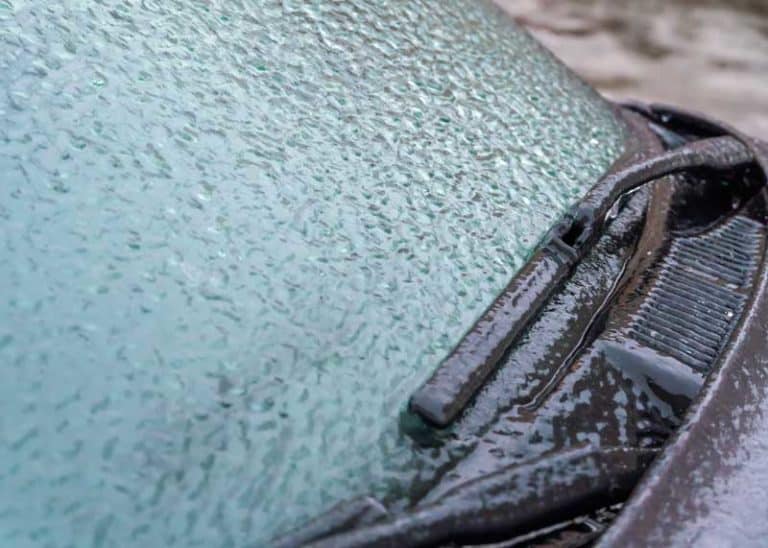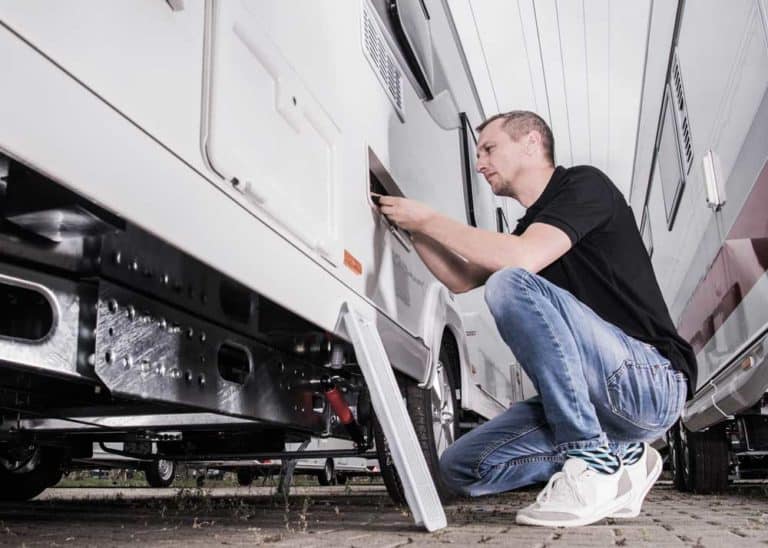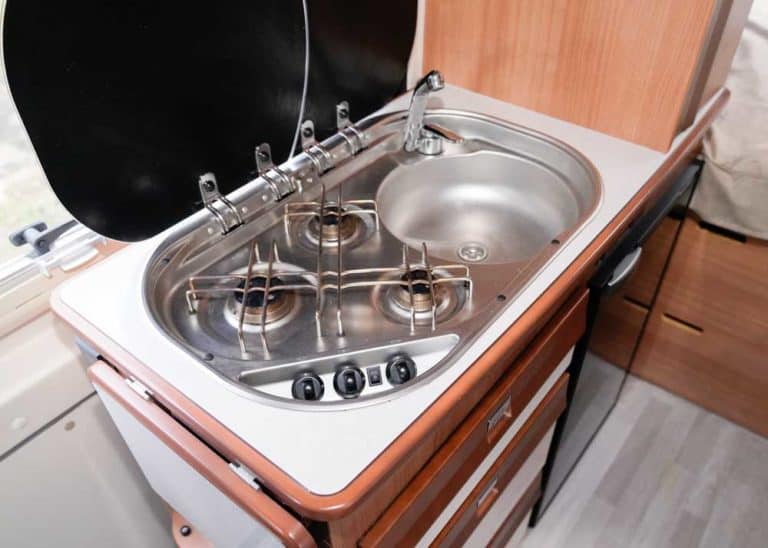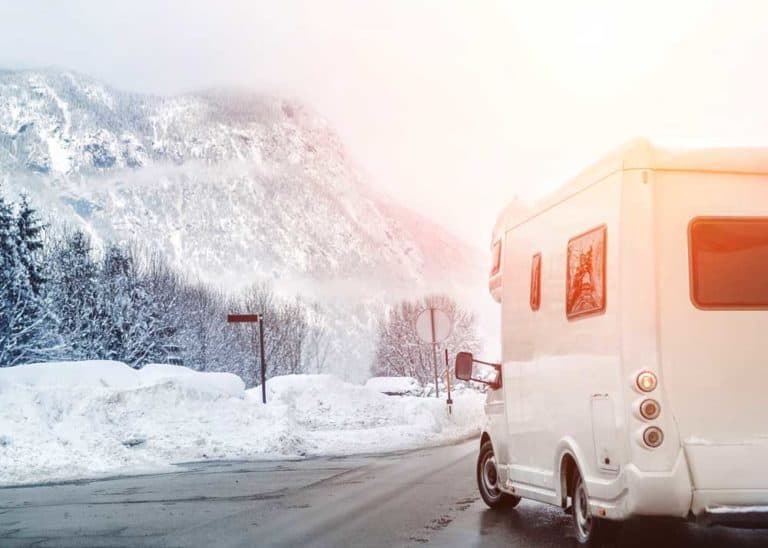How Does An RV Refrigerator Work? Simple Explanation (3 Types)
If you’re thinking of getting an RV and hitting the road, you may be wondering if you can keep the creature comforts of your home while you’re in your RV.
Many people wonder about keeping their food fresh and cool while they’re on the road. It seems complicated, though, because how, exactly, does an RV refrigerator even work?
RV refrigerators normally work through a combination of gases and chemical reactions that evaporate and condense the air inside the refrigerator, making it cool.
It’s called an absorption refrigerator and uses the following gases or liquids:
- Ammonia
- Hydrogen gas
- Water
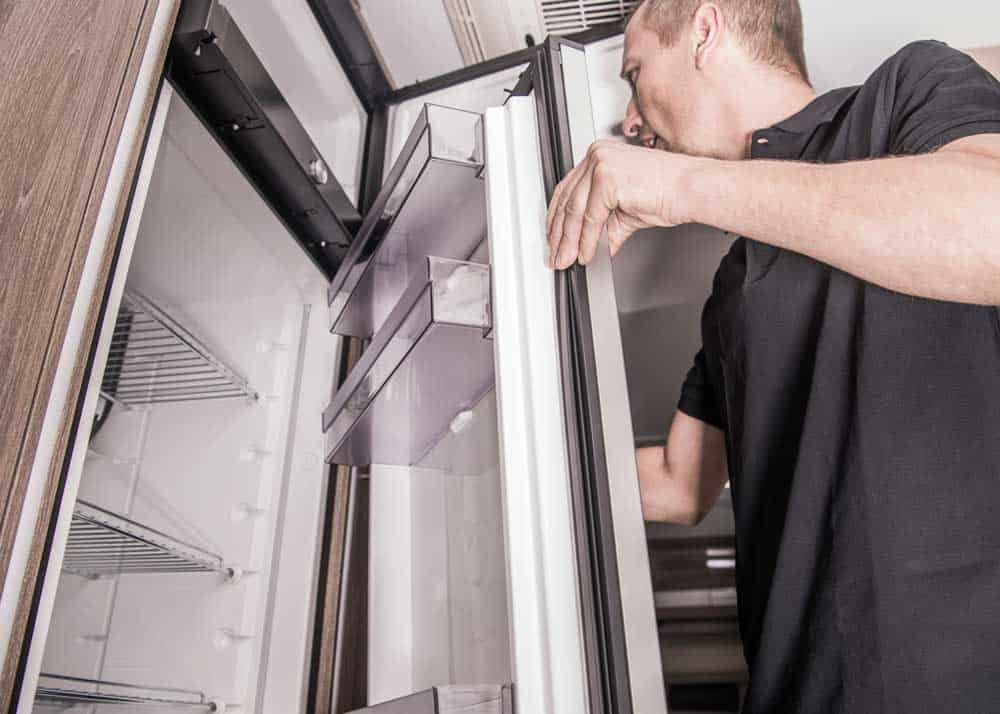
While most RV refrigerators are absorption fridges and work off a propane/electric source, that doesn’t mean all RV refrigerators are that way. Are you still confused? No worries.
Read below for a detailed explanation of how RV refrigerators work and the best kind for your particular RV.
How An RV Refrigerator Works
Refrigerators found in your home use a compressor to keep the air cool. Many times, RV refrigerators are called absorption refrigerators.
- An absorption refrigerator uses gases and liquids and heats them.
- Those heated gases and liquids travel through tubes and inside the refrigerator casing and create evaporation, pulling the heat away from the inside.
- As the evaporation continues, the refrigerator continues to cool.
- The refrigerator uses either a flame or a heating element to heat the liquids and gases.
To keep a refrigerator running, you have to have a power source.
3 Power Sources for RV Fridges
An RV refrigerator will work on one of three power sources:
- Electricity (AC Power)
- Propane
- Battery (12 Volt)
Your RV refrigerator will most likely work on a combination of the above. You can have a dual electricity/propane or a dual propane and battery fridge.
How an Absorption RV Fridge Works
Here is a visual guide to how an absorption refrigerator works.
3 Types of RV Refrigerators
Typically, there are three types of refrigerators available to RV users:
- Dual Electricity/Propane Refrigerator
- Battery Powered Refrigerator
- Mini-Fridge
What is the most popular RV fridge? The most popular RV refrigerator seems to be the dual-system electricity/propane refrigerator.
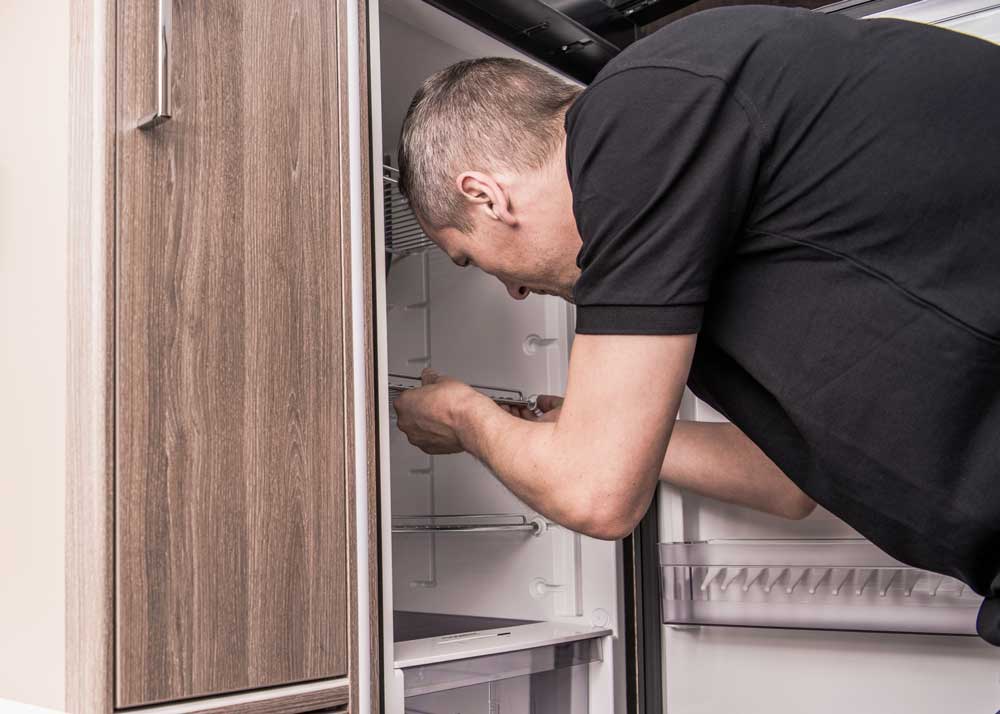
1. Dual Electricity/Propane Refrigerator
For this refrigerator, you must have a propane tank installed in your RV and keep it filled when it runs low on propane.
Normally, these refrigerators have an “Auto” mode, which will automatically switch from electricity to propane when you disconnect from an electrical power source.
This is handy because all you have to do is make sure your propane tank is topped up with fuel.
This is a good refrigerator to have and requires very little thought from the RV owner. However, there are a few cons you need to remember when purchasing a dual refrigerator:
- Can be expensive to either buy or repair
- Must remain level or it will malfunction. Here’s how to level your RV
- Prone to leaks after a few years
Because this type uses propane, it can be prone to leaks in the pipes leading from the propane tank to the refrigerator.
These pipes can be hidden and difficult to navigate if you suspect a leak. If you smell propane, it would be wise to get it checked out as soon as you can.
The dual electricity/propane fridge is the most popular absorption refrigerator for an RV.
Below are some good choices for your RV:
SMETA Electric Propane Absorption Refrigerator. 3.5 and 6.1 cubic feet. Runs on 12V, 110V, and Gas LPG.
- Smad Gas Electric Refrigerator 2 door – 6.1 cubic feet, quiet, reversible door. Runs on 110V and propane.
- Norcold N410.3UR RV Refrigerator – 4.5 cubic feet, auto-changeover, flip-up bottom shelf.
You can expect to use up to 1.5 gallons of propane a day in these types of refrigerators if you are relying strictly on propane and not electric.
These are also the most expensive RV refrigerator option.
Trouble with your fridge not working on the electric connection? Here’s how to fix it.
2. Battery-Powered Refrigerator
Battery-powered RV refrigerators can use a 12-volt battery for power.
You also have the option to get a battery/electric RV refrigerator, which means you can hook it up to an electrical power source once you’re home or at a campsite.
For these refrigerators, you just plug it up to your RV’s existing battery. These types of refrigerators can also be compressor refrigerators, unlike the absorption refrigerator so prevalent in RVs.
Because it runs off a 12-volt battery, these refrigerators tend to be on the smaller side, so they don’t pull off too much power from your battery. These will often look like traditional ice coolers.
Some of the best battery-powered refrigerators are below:
Alpicool C15 Portable Refrigerator – Holds 16 quarts, temperature memory function, three levels of battery protection
- AstroAI Portable Freezer and Refrigerator – 58 quarts, fast cooling, three levels of battery protection
- Costway 53-Quart Fridge – High-quality compressor, 3-level battery protection
It’s also possible to put some portable solar panels or a small windmill on your RV in order to generate power for the 12-volt battery that will power your refrigerator.
Some campers like to get off the beaten path, called boondocking, or RV camping outside of a traditional campground.
In this case, instead of lugging around a spare generator, portable solar panels may be a good alternative. With these, you don’t have to run down your RV battery to power your refrigerator.
Like generators but tired of the sound? Here’s how to quiet a generator.
3. Mini-Fridge
These refrigerators are exactly the type you would put into a college dorm room or your garage to hold drinks. They’re small and run exclusively off electrical power.
Because of this, these refrigerators can only be used where you have an electric hook-up, so you’re out of luck if you’re on the road for a long while and need to keep your food cool.
You must make sure to keep these refrigerators level as this is a compressor refrigerator. If you don’t keep a compressor refrigerator level, the gas could pool in one part of the compressor and damage the unit.
Some excellent mini-fridges are listed below:
RCA RFR322-B 3.2 Cubic foot mini fridge – Stainless steel, large capacity, reversible door
- Black and Decker BCRK17B Compact Refrigerator – Space-saving, reversible door, leveling legs
For an RV, if you’re on the road a lot, this is probably not the refrigerator you want.
The fact that you can’t keep your items cool while you’re driving is a detriment. But if you have a permanent hookup this might be an option.
Here’s how much it costs to install your own RV hookup.
8 Tips For Your RV Refrigerator
An RV refrigerator takes a little more thought and planning than a refrigerator for your kitchen.
There are certain tips that can help you maintain the life of your fridge.
Take these into consideration:
- Turn on your refrigerator several hours before you plan to use it
- Put an ice block in the refrigerator to speed up the cooling
- Keep the refrigerator level
- Consider purchasing a battery-operated RV refrigerator fan
- Make sure the refrigerator vents are clear and dust-free
- Park your RV so that the outside vent is in the shade
- Leave airflow between foods – don’t pack too tightly
- Defrost on a regular basis
With preventive measures such as the above, you can increase the life of your refrigerator.
Here are 4 tips on how to keep your RV fridge cold while driving.
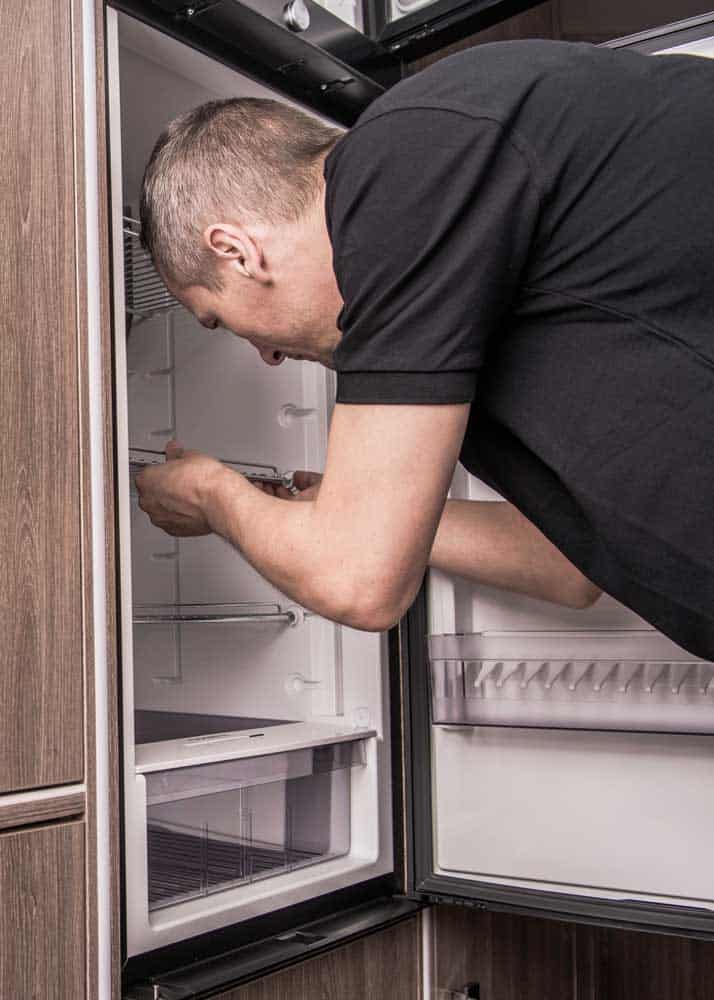
More reading: How to keep mice out of your RV camper
Your Turn
What’s best about a refrigerator is you don’t really have to think about it. You plug it in, and it cools the space for your food.
With an RV refrigerator, more thought is required, but, for the most part, the newer RV refrigerators are as stable and reliable as your full-size home kitchen refrigerator.
Once you do your research, you can rest assured that you’re getting a solid piece of equipment that’s perfect for your travels. Happy RVing!





